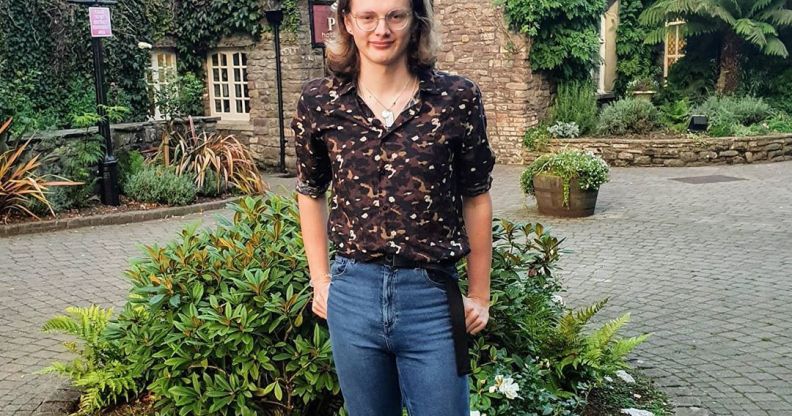One of Britain’s most promising young athletes, Emily Bridges, has come out as trans with an inspiring message of inclusivity

Cyclist Emily Bridges. (emilybridges45_/ Instagram)
Emily Bridges, one of Britain’s most promising young cyclists, has come out as trans.
Bridges penned an op-ed for Sky Sports on National Coming Out Day, just a year after she won her first national title and placed fourth at the World Junior Championships.
Bridges began cycling at the ago of nine when she moved to Wales, and competed in her first race when she was 11.
When she was 16 years old, she won a silver medal at the 2017 junior nationals, and moved on to the Great Britain Junior Academy, the home of Olympic hopefuls. In the first year she was hit twice by cars and once by a motorbike, yet still managed to win two silver medals at the national track championships.
Despite the ups and downs that have marked her short career, the hardest part has been suffering in silence with crippling gender dysphoria.
In the essay, she explained that she grew up “feeling isolated” from other children, and started to experiment with gender non-conformity when she began cycling, which she said “made sense” to her.
“I wanted to dress in a feminine manner but I’d always had such a deep sense of shame about it,” she said. “I believed that everyone would hate me for stepping out of my masculine box and wearing dresses or makeup. Nevertheless, I knew deep down that this is who I am.”
Emily Bridges was ‘scared’ the cycling world would find out that she was trans.
In 2018, following multiple injuries, Emily Bridges said her mental health began to deteriorate.
She said: “I’d grown increasingly aware of my gender dysphoria, and my mental health became worse and worse. I was in a bad way.
“I told my coach that I was suffering from depression and I got the help and support that I needed, but I didn’t talk about my gender identity as I was scared the cycling world might find out.”
Her mental health improved following her A Level exams last year, but Bridges later found out that she had been competing on a broken ankle without knowing, and was forced to spend weeks in rehabilitation. During this time she thought a lot about “how unhappy” she was, and by October of last year, had started to identify as trans to herself.
“I knew that if I wanted to be happy, I would have to transition at some point,” she wrote. “I began seeing a specialised therapist when my depression returned and my gender dysphoria was getting unbearable.
“By this time, I was completely suffocated by my thoughts and felt trapped in my own body. I desperately needed space and time to talk.”
Although she had come out to a few trusted people at home, in the cycling world she was forcing herself to be someone else, which began to impact her training. Eventually, in August this year, Bridges was informed that she had been dropped from the Great Britain Cycling Team.
Although she was “disappointed”, she took the setback in her stride and immediately applied to university. She is now studying french and politics in Nottingham, and is finally out in the world of sports.
The promising cyclist said the sport has ‘a long way to go’ before becoming fully inclusive.
Emily Bridges believes “there’s such a long way to go in making sport, specifically cycling, more inclusive,” and added: “We need to encourage more people from BAME backgrounds, more women, disabled people and LGBTQ+ people into cycling.
“It’s still seen as the domain of white, middle-aged, middle class men, and it needs to represent the wider population much better, and be more accessible.”
To help make this a reality, Bridges has opted to take part in research on the effects of medical transition on athletes. She believes this to be the first time an elite-level, international athlete has submitted themselves for research, and hopes to prove that existing regulations on trans athletes competing in sport are “appropriate”.
Bridges added: “For those that know me, I’m still the same person. The difference is that now I’m being more true to myself.
“I hope that by sharing the story of my coming out, it helps someone else out there to be true too.”
Julie Harrington, British Cycling CEO, applauded the young athlete on coming out.
She said: “On behalf of British Cycling, I want to extend our full support to Emily.
“Coming out is a significant moment in her life which we celebrate with her, and we wish her all the best for the future.”

